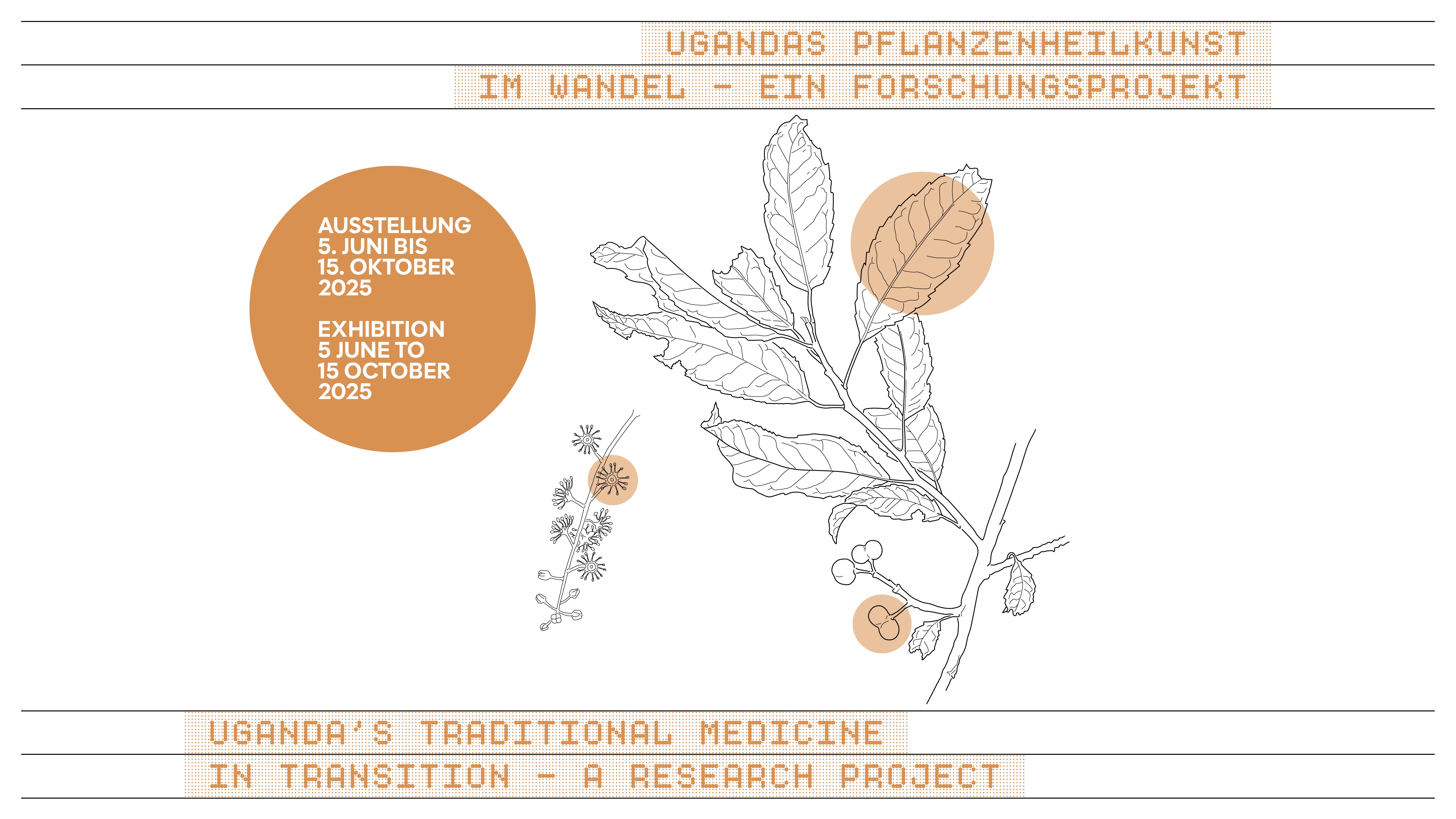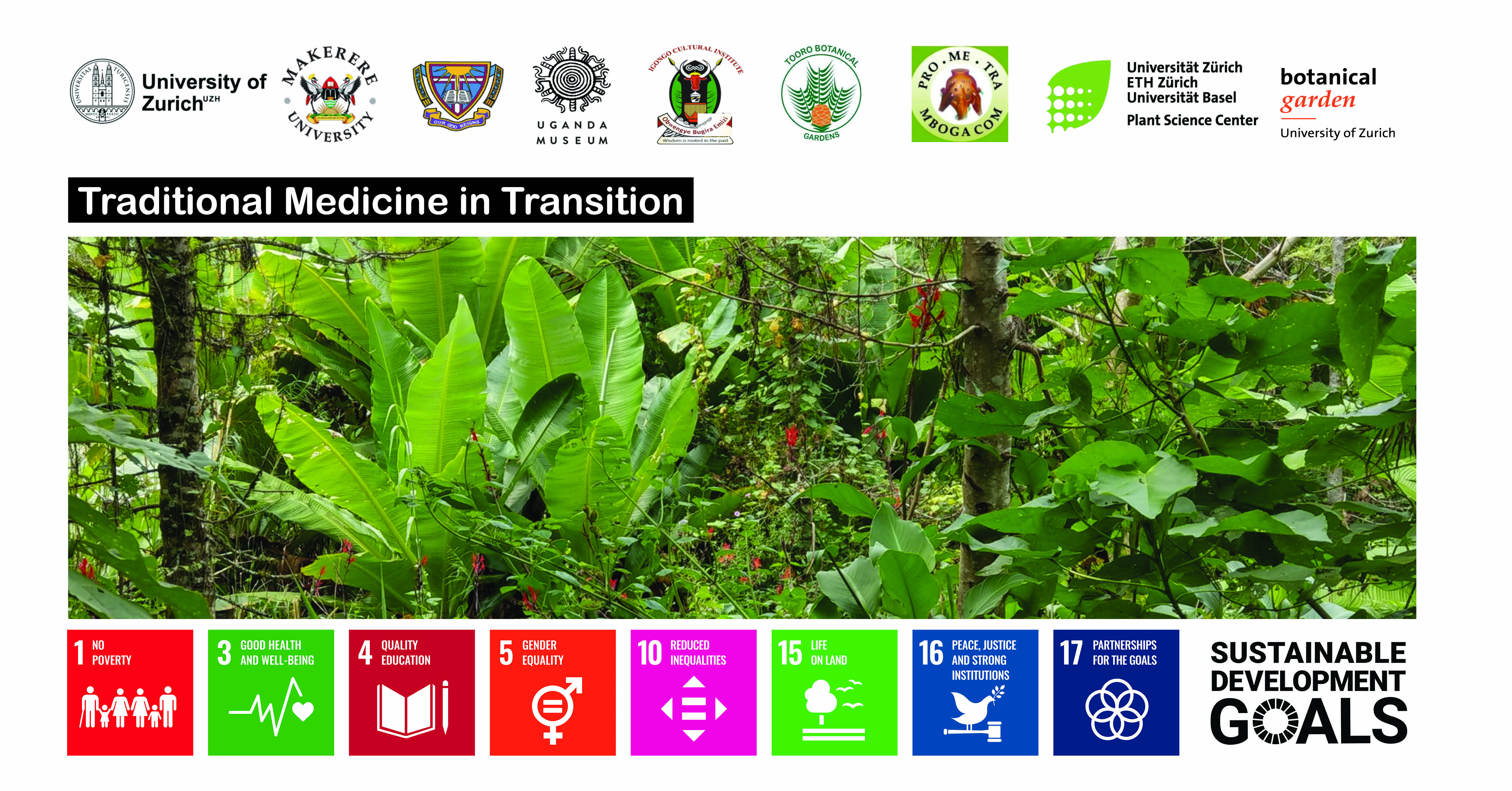Research projects
Exhibition: Uganda's traditional medicine in transition

During the Covid-19 pandemic, Uganda’s public healthcare system struggled more than ever. As a result, more people became interested in traditional herbal medicine. The World Health Organization, WHO, encourages African countries to support traditional medicine as an integral component of their healthcare systems. However, in Uganda, traditional medicine is at risk because natural resources, cultural heritage, and knowledge are being lost. Action is needed to secure its future and further development as an important part of healthcare and cultural heritage. Together with local museums and researchers, the exhibition aims to raise awareness.
This exhibition was curated jointly with researchers and museums in Uganda as part of the SOR4D-project funded by SNF / DEZA: "Traditional medicine in transition. The role of museums as agents of change for effective, safe, culturally embedded, and sustainable knowledge transfer in Uganda."
5 June to 15 October 2025
Botanical Garden of the University of Zurich, Zollikerstrasse 107, 8008 Zurich

PSC is project partner.
The project chaired by PD Dr. Caroline Weckerle at University of Zurich explores the role of museums as agents of change for effective, safe, culturally embedded, and sustainable knowledge transfer in Uganda. The project partners combine epidemiology, ethnobotany and socio-cultural research to analyze underlying dynamics and interrelations of contemporary knowledge transmission in the field of Traditional Medicine.
Advancing Open Research Data (ORD) practices

Herbarium specimens are preserved historical records of species that hold a wealth of information, including genetic information and ecological data. The E-Specimina project aims at leveraging preserved plant specimens to support biodiversity research and to foster Open Science practices. The idea is to increase scientific and educational use of digital natural history collections (NHCs) by improving interoperability and access to data. A key aspect is raising the awareness of the importance of integrating all organismal research data in line with ORD criteria and FAIR principles. Coordinated by Reto Nyffeler – Curator of the Herbarium and Botanical Garden at the University of Zurich. Funded by swissuniversities.
Evidence-based dialogue on trade-offs in wicked societal problems

Since 2023, PSC has been training partner in ETH’s Joint Initiative ENGAGE, carried out by EAWAG, ETH Zurich, WSL, EMPA, Agroscope, and EPFL. The initiative fosters an evidence-based dialogue to navigate the trade-offs inherent in society’s most complex challenges. Through hands-on workshops and targeted capacity building, ENGAGE empowers researchers, policymakers, and stakeholders alike. In 2024, over 110 participants joined us across four key events:
- Power Dynamics in Science-Policy Dialogues
- How to Successfully Engage with Stakeholders?
- Reaching Mutual Agreements: Practice the Art of Negotiation Effective Science-Policy
- Collaboration in Biodiversity Management Capacity Building.
Together, we’re not just discussing wicked problems-we’re equipping people to solve them.